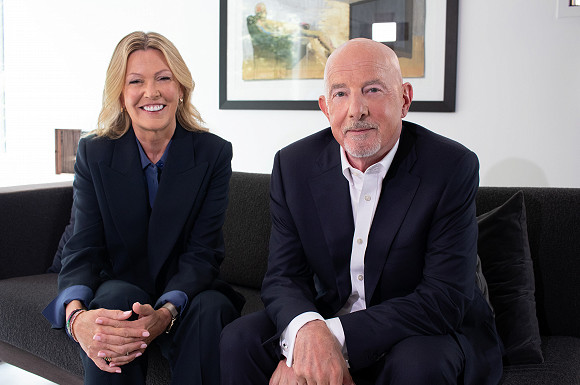10/08/2022
Dr. Ewan Kirk on Charity Chat – “That ability to fail and to allow people to fail is important.”
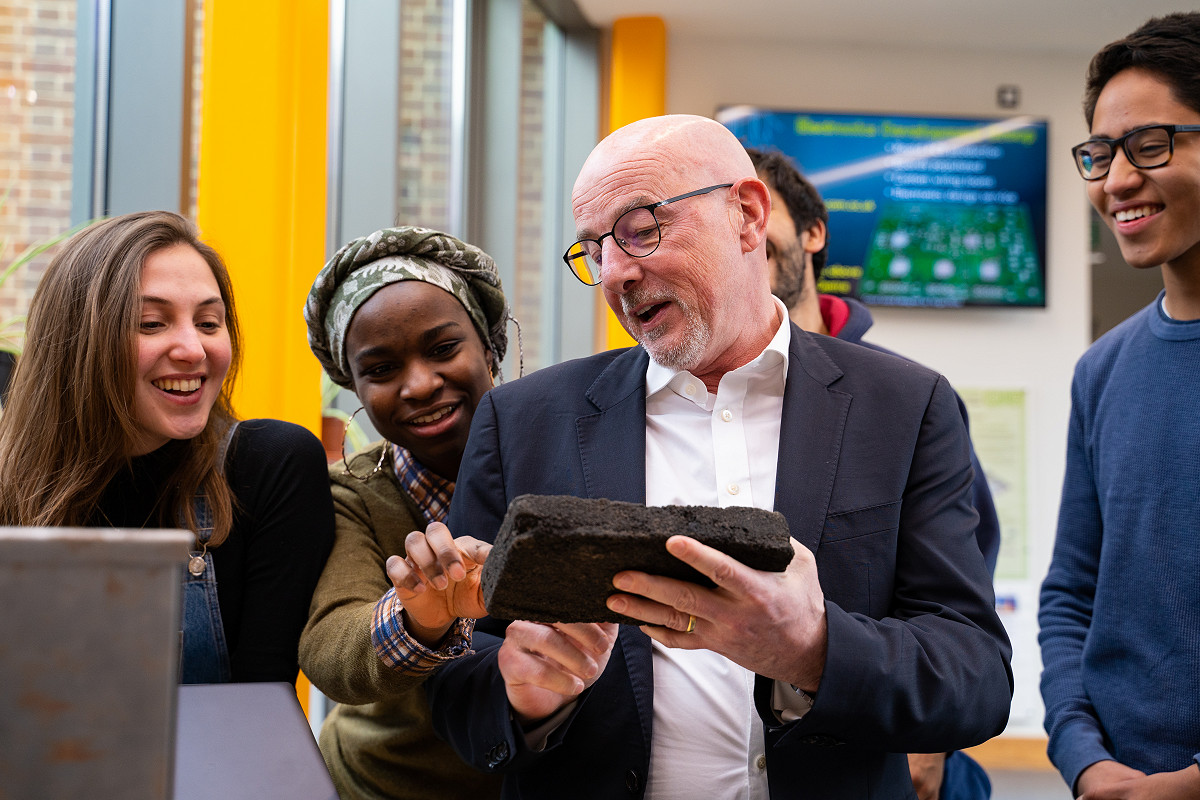
Hosted by Rebecca Lafond, the podcast focuses on all things to do with philanthropy and charity. They welcome charity leaders, philanthropists and others that are leading the charity sector and are innovating different methods, practices and philosophies for others in the sector to learn from.
In this episode, Ewan discusses many things with Rebecca: from his business experience to his renewed focus on philanthropy; and from explaining the importance of STEM to showcasing why failure is so important for kickstarting change.
Rebecca (R): Hello, and welcome to Charity Chat. I'm your host Rebecca Lafond. In this episode, we'll be talking to Dr. Ewan Kirk. Dr. Kirk is a very successful technology entrepreneur, and he is also the Founder and Co-chair of the Turner Kirk Trust.
In this episode, we talk about why philanthropy should be more than just writing a cheque, how we can put innovation and collaboration at the heart of everything that we do, and why it's important to experiment and try out new ideas, even if they might fail.
This episode has been brought to you by our platinum sponsors, Work for Good. Work for Good believes everyone should be able to turn the work they do into good. Through their fundraising platform, they offer charities a way to engage and work with small businesses, including founders, owners, and sole traders who want to make an impact for charities through their sales. To find out more, please visit workforgood.co.uk. And now for my chat with Dr. Ewan Kirk!
So, hi – thank you so much for joining us today. I guess it'd be good just to start off with a bit about you; what do you do, where you come from, how did you get interested in charity?
Ewan Kirk (EK): Sure! Okay, well, I grew up in the west of Scotland in a town called Cumbernauld, which is not a nice place to grow up. I got myself an education at Glasgow University in Cambridge University, started a few companies when I was doing a degree and a PhD… and then, I went to the dark side and joined Goldman Sachs where I was a programmer mathematician there in charge of all of that sort of geeky stuff. So, I ran a team called the ‘The Strategists’ who did all of this front office systems and risk management and structuring at Goldman Sachs. So I retired from there in 2005 as a partner, and I took a year off and travelled the world with my family and bought more guitars and went to the gym every day, which is the sort of thing that a man of my age does when we retire. And then in 2006, I started a systematic quantitative hedge fund based in Cambridge called Cantab Capital Partners with this expressed purpose of being the geekiest possible place I could make it. And we grew that up – the team was 60, most of them mathematicians or computer scientists with PhDs, writing models to protect the market. We were managing $5 billion of other people's money.

R: Wow.
EK: And then in 2016, I sold the firm to Swiss Asset Managers, and since then, I've been doing a lot of different things on the board, various companies, investing in FinTech start-ups. But generally, I suppose I’m doing a bit less of that and am 100% focused on one thing, and, of course, one of the things that a little bit more free time has enabled me to do is to spend a bit more time on philanthropy!
R: Yeah. Have you always been like interested in charity work or is it something that's just come now that you have retired and have a bit more time?
EK: It's hard to do it properly unless you've got a focus. So, you know, when I was running the firm for 15 years, it's an all-encompassing thing and so there would be times where there would be various charity events or something, and somebody would – I don’t know, I'm trying to think of an example – so somebody would want to buy a bus for the kids to take them to wide open spaces or hill walking or to do things in the sea. And I'd say, “well, that sounds pretty cool – that's a good thing, here's a cheque, never talk to me again.” And it is a nice thing to do, but it's very unstructured. And I think one of the problems is sometimes people in charity and philanthropy do that unstructured thing, and that's not really the way that I have managed my life, I guess, in terms of thinking about things carefully and trying to do things properly. So, when I, or when we – my wife and I – had more time, we decided to think a little bit more carefully about what it is we could do in the philanthropic space and try, and as I say, structure it better and focus on certain things and think carefully about the value of every penny that you put into charity.
I mean, we can unpack a lot of things in over the course of the next 30 minutes, I'm sure.
R: Yeah. And I guess it'd be quite useful for charities – because there's a lot of charities that listen to us – about (because I guess you're talking about the structure) how do they make things a bit more structured for people that want to get into philanthropy and don’t just want to write a cheque? How do we make it so there's more to it than that?
EK: Well, I think the first thing that you have to do is to think about what are the things that you… it’s not just about ‘what do you care about?’, but it's where do you have something beyond just the money where you may be able to think about things? And also, it's important to remember the scale of the money that you are giving and how that can make a change. So, whilst a lot of people think, “well, if everyone gives five pounds, then that turns into quite a lot of money”, but generally not everyone does that!
Unless you are Bill Gates, you really can't take on the really big problems. I mean, one of the things I thought was fantastic about the Gates Foundation is that they went away and thought about ‘what are the big problems that we can afford to fix?’ And if you are Bill Gates, you can say, “okay, one of the biggest problems in the world is malaria!”
I mean, it's a huge problem. You know, hundreds of thousands of young children die of malaria every single day – sorry, every single year. And that's a massive problem, but it was a problem within Bill Gates’, or the Gates Foundation's ability to do enough research and enough experiments and enough support to be able to pretty much – or at least make a lot of progress – in solving that.
I'm not Bill Gates – I can't afford to solve malaria. And that is true of a lot of things. I use this phrase a lot, which is that ‘a lot of problems are government size problems.’ So it might be lack of water access in Africa: you know, lack of access to clean water is a big problem, and I know that I could give some money to sink a well – and that would be a good thing for that village, that group of people, because they would then have clean water. But it's not solving the problem of why people in the developing world don't have access to clean water! The reason they don't have access to clean water and we do is because infrastructure, because government, because of all of those things, which are just much bigger problems. So the first thing, you know, when you get into philanthropy is to work out what are the resources that you've got and what change can you affect with that?
One resource, that of course everyone's got, is their time – and their thoughts and their ideas. What we have decided to do, which may or may not be right – and one of the things that is very important in all these things is to realise you might be making a mistake – but what we've decided to do is invest in projects, which are catalytic, which are experiments to see whether or not something might work. So that brings us to the next thing – which we talk about a lot – which is this Permission to Fail, which comes from the fact that a lot of charities… let me approach it in a slightly different way… when somebody gives money to a charity, they want to see that that money is doing good. If you give money to a water charity in the developing world, then you want to see that people have got clean water. That's why you gave them money, right? It's quite transactional. And whilst that's a good thing – and obviously charities do have to deliver what they say they're going to deliver – it's very hard for them to experiment and do something else. But maybe, you know, we'll take a water charity again, maybe the way that they're drilling wells or getting local people involved, maybe that's not the best way of doing things. Maybe there's another way of doing it. But they can't go and experiment with that because it might fail. Right? They might go and do that and actually turns out that this idea that they had would make it better. And from my background, I'm a bit of a scientist and certainly a bit of a geek – doing experiments and having them fail is really valuable because you know that you don't do this, or you don't do that. Or, you know, we've definitely worked out that this is the wrong way of doing things so maybe we'll try something else. And what we're trying to do is to make that a way of interacting in the philanthropic space so people can do experiments!
The example that we always use on this is a charity called SolarAid who are trying to light up villages. So they can get a solar panel with a battery, which powers a couple of lights and a couple of mobile phone chargers. And they can get them made really cheaply and delivered to, I don't know, a port in Kinshasa or something, where they're ready to be distributed. But they didn't know how or what the best way to distribute it was. Should they give them away? Should they sell them? Should they rent them? Should they have higher purchase agreements? Should people basically just have them fitted in their house and then pay a monthly charge (a little bit like we pay a monthly charge for electricity in the West)?
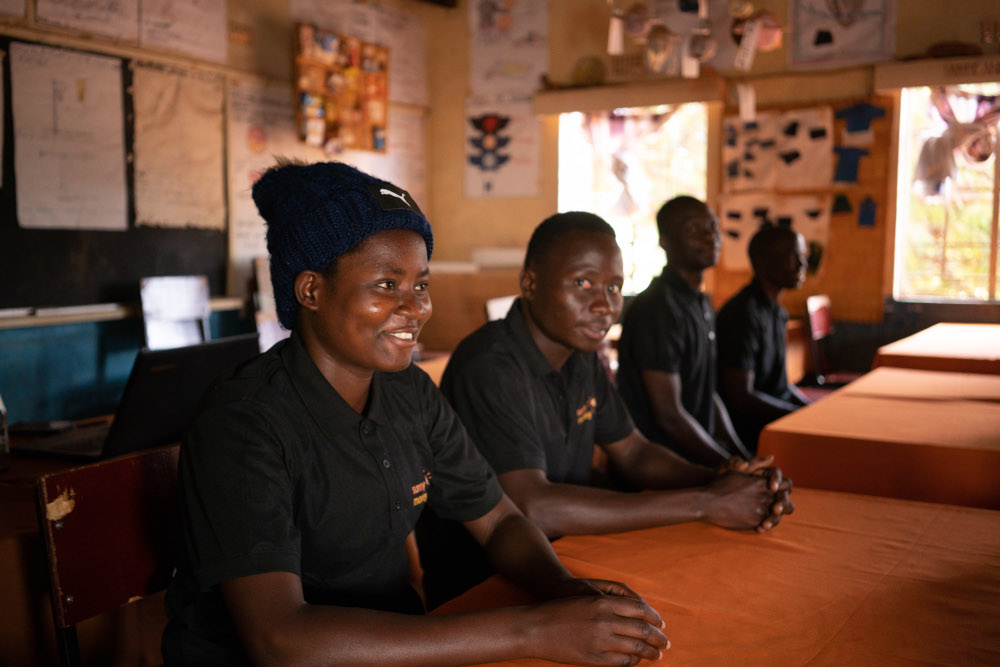
I mean, who knew what the right way to do it was! And so we gave them some money and said, “go and run five experiments in different villages, do it differently in each one. And we literally don't care if all of them fail because you have learned something.” And then you can maybe go and try something else we don't know. And that's a very different way of thinking about philanthropy! There are some things which are hard to get funded – I mean, this is true in government as well; governments don't really like to try things in case they fail, because then it's on the front page of the newspaper, Government Wastes 50 million on a Pilot Project to Educate Children in the UK.
Well, yes, it's not great that that's happened, but actually it's not bad thing to run a pilot and find out that it fails because then you're not gonna do it again. So, that ability to fail and to allow people to fail I think is important.
R: That is actually so interesting because you are so right! I work for a charity and so many times people give money, and they just want the basics – they just want to see it work. But I do think that it's so important that we do try and we do experiment because how do we know that we are delivering the best that we can if we don't do that.
So, I guess that brings me onto my next point. I've seen you talk a lot about like innovation and collaboration and, I guess, what does that mean to you?
EK: I think the innovation side of things is, in general… innovation is a good thing.
I mean, it's brought us everything from fire, and the wheel, to iPhones! I mean, it's a good thing for people. But you should never do it for its own sake (so just innovating is not necessarily a good thing); there’s a great story, which is probably apocryphal, about NASA who spent millions and millions of dollars making a pen, which could write in zero gravity – and the Russians used a pencil.
So, sometimes you don't need innovation and technology solutions, but sometimes it really does help! And what we have at least tried to in the Turner Kirk Trust is to identify where innovative solutions might give a step change to something. So, you know, from getting hardcore economists involved in conservation – well – that's not normally the sort of people you'd expect to be involved in conservation. You know, you've got an idea of somebody sort of in shorts and a t-shirt, flip flops, conserving corals or something. But there's also an economic aspect to that maybe. So, maybe you can generate some innovative solutions to that by involving different types of people in the process.
And that's also the same thing with collaboration! There are an awful lot of charities, which basically do the same thing. And however gentile the charity in philanthropic sector is, they're kind of competing with each other. They're competing with each other for the charitable dollar and that doesn't work very well – they should be working together; they should be identifying the big problem. You know, there are lots and lots of problems, particularly in the developing world, which are in fact based on the same underlying problem, which is there isn't really a very good rule of law, and there isn't really a very good political, social infrastructure in each individual country.
Or, if we think of the problems with – something that's very close to my heart – STEM education, and you're looking at how children (let's just say in the UK) are educated in STEM. There's just lots of failures there. Some huge proportion of the cohort coming out of school right now are functionally enumerate – they cannot really count in some way. And that's a big problem. As is the problem that people don’t have good reading skills or they don't have good opportunities or all of these problems. And this is not just about funding one school to teach some children to be better at maths and engineering and technology. What we have to do is identify what are the underlying causes of that and try and work out how we can do it better. And that involves collaboration, not just between different philanthropic organisations, but also between philanthropic organisations and governmental organisations. We should be working together on this, but sadly that seems to be quite hard to do.

R: Yeah. I do really agree with what you're saying there, and I think it's such an interesting – and I guess also hard topic, to think about innovation, because I think there's a lot of people that want to, but they just don't know where to start.
They don't know what's best. As you said, with NASA spending that money on a pen, you could just end up wasting your time. What would be your advice for a charity or a philanthropic organisation if they want to start innovating? What's their first step?
EK: It's a hard question.
R: Yeah. Sorry!
EK: No, no, no, hard questions are good questions because they make you think! And that is the hard question that charities need to ask of themselves. I think some of it is about… ask experts. Experts tend to know more about things than generalists. That’s just true. So, ask experts and also try not to take too much account of your own view. Try not to take too much account of your own view. A lot of people, they get into philanthropy with a really strong view that this is the one thing that is going to solve the problem of homelessness, or water access in the developing world, or educating people, whatever that might be, or curing this illness. You need to realise that maybe you haven't got the right idea.
Now, I realise that for the past 20 minutes I’ve been saying, “hey, this is what we’re doing and I think this is a great idea!” So, I’m trying not to be hypocritical about that.
But what we’re trying to push, in a way, is the ability for people who are experts in something – to work on it – that I think is very important. Even though we are involved in a lot of different projects, I never feel like it is my job to steer that project. It's not. It's the job of the people who are doing the project.
It's the job of the charity who know much more about it. All we do is say, go and have a think about if there's any other way of doing this, if there's something that you've always thought might be a good idea but you didn't have the time or the money and then come and tell us what you think it is. And as long as it's not completely outlandish, we'll just say, okay, go and give it a try.
So I think the people who are getting into philanthropy, or for charities themselves, they need to be willing to A) Think more broadly, think about whether or not they can join with other charities, work together, multiply their own resources. Secondly, they need to attack a problem which is within their resources, and secondly, try and raise money for doing things a little bit differently. That's what philanthropy's good at doing.
R: Do you think you have this viewpoint because you come from a business background, and do you think charities should see their organisation as more of a business in some sense?
EK: I’ve got to be quite careful around this particular topic. Because I'm well aware of the fact that everybody thought that Donald Trump would be a great president because he was a businessman, and of course he was a disaster.
Being a businessman, or business person… I'm sorry… being a business person, doesn't automatically make you good at lots of different things and it certainly doesn't give you any extra insight. It does sometimes cause people to have that Dunning-Kruger effect, where they know a little bit about something and therefore they think they're an expert.
I don't think that, people who come from a business or financial backing background aren’t necessarily any better at running charities than people who don't. People who come from the third sector are good at doing it. There are obviously, at some very basic level, charity is a business. It's got income revenues, most of which are donations, and it's got outgoings, which are mostly spending money on good things.
And you definitely want to not spend more money than you've got coming in. That's a pretty big thing. In general, you want to make sure that you invest in people and invest in infrastructure and all of those things, which are the same things that you do in a business. I just don't think the business people are particularly good at running charities.
The way we approach things – most doesn't come from a business perspective, but comes from a scientific perspective. I said before, I'm a scientist, I'm a geek, I'm a programmer, I'm a mathematician, and I approach things that way, which is things like evidence led experimentation, having justifications for things, thinking in probabilistic terms as well.
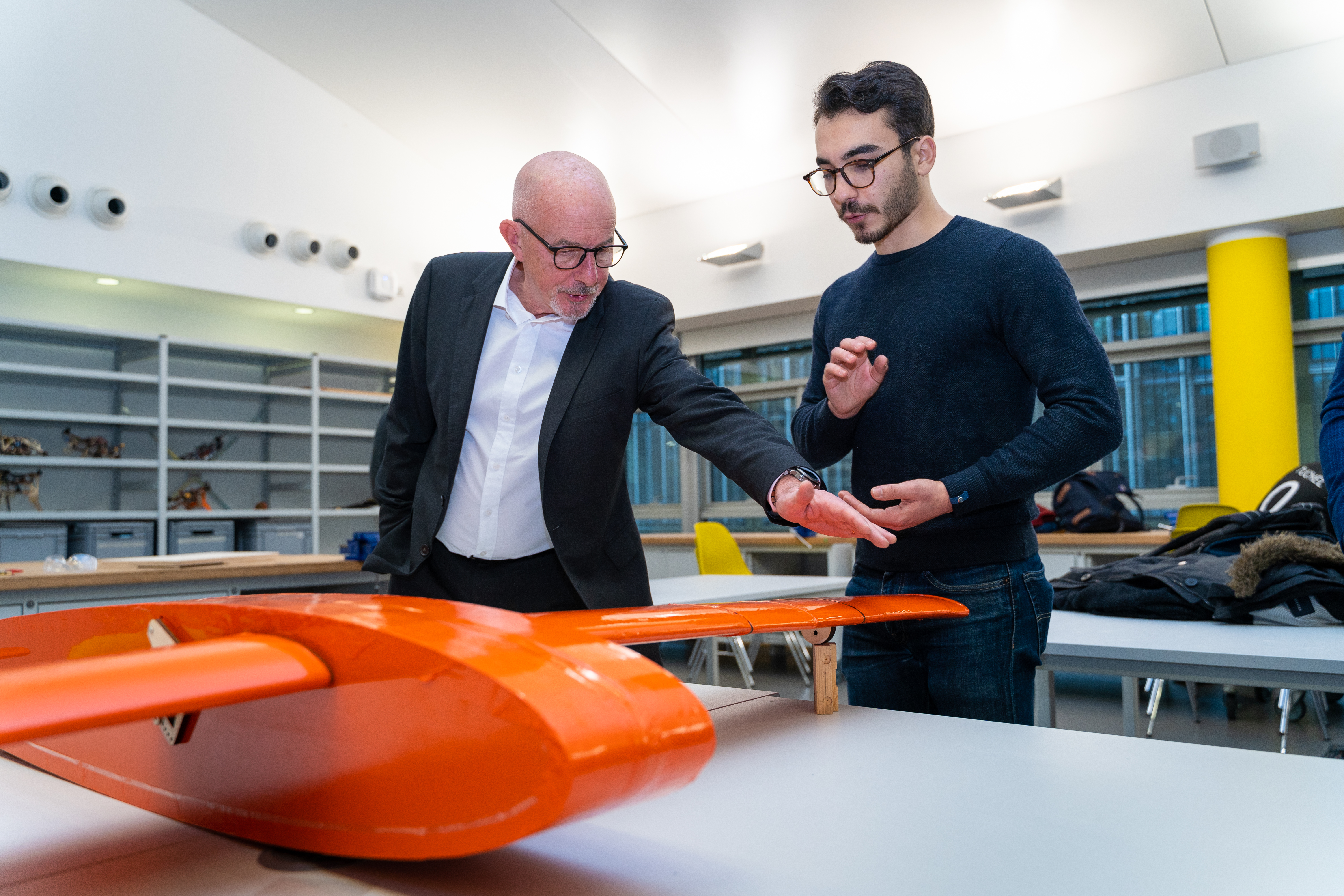
Is it worth worthwhile investing or giving to something that's only got a 10% chance of succeeding? Well, if the upside of that thing succeeding is a hundred times better, then yeah it definitely is. It's thinking about probabilities, it's thinking about risks. That's the only thing really that comes out to my background that is applicable to philanthropy.
R: We've spoken about how we need to add more innovation and collaboration into the sector, how there’s some changes that need to be made, but who do you think needs to lead this change? Do you think it needs to be philanthropists? Do you think it needs to be the charities, or do you think it needs to be partnerships?
EK: The philanthropists have a lot of power because they donate the money. Often, sadly philanthropists misuse that power. So, they say particularly when it's a big donation, I am giving you a large amount of money to do X, and the charity says hey that's a lot of money we better do X, even though it may not be the right thing to do.
Philanthropists can ask for things and nudge, but I think it's bad for philanthropists to be dogmatic about something, and say this is what I want to do. You can see that at its worst in American universities where people give insanely large amounts of money to build a basketball pole or a building, so they can have their name on the building.
When people are donating billions of dollars to Harvard so that they can have their name on the library, I don't think that's the best use of those philanthropic dollars really. I'm sure the Dean of Harvard, if he or she was asked, would say, well, actually we don't really need a library.
What we need is more bursaries for students from an underprivileged background or something, but what they get is the library. So the other people that can make the change are charities, and that's hard to do because they are at the mercy of their donors. Whether or not it’s lots of little donors or one big donor.
They can set the tone of the conversation. They can say we'd like to try and do this, but it might fail, but we'd still like to give it a go because we think it's good. I think as a charity, you can ask for donations with that in mind. Here's an innovative new way of supporting people from underprivileged backgrounds, we'd like to give that a try – it might not work. And then of course, the third thing is: is this a collaboration? And it is really. The ecosystem of philanthropists and charities is very tightly intertwined and unless the whole group moves as one in a direction, then there's no point in charities going off and saying, we'd like to do this and not bringing the philanthropists with them.
There's not really a lot of point of the philanthropists going off and saying, we'd like to all fund this and the charities not following them in that space. I think it really does have to be a conversation, but one of the things we're trying to do in the trust is make that conversation a bit easier.
R: It would be quite nice to talk about your trust a bit more. Where is the trust money concentrated? I know you've talked about STEM a little bit, and how does this impact how your funding is allocated as well?
EK: We have really two or three main areas that we tend to fund. One of those is STEM, the second one is conservation, which map very closely to my interests, and my wife's interests. She’s much more in the conservation space – I'm much more in the STEM space, but there’s obviously a little bit of collaboration there as well. And early child development is another area, but that sits quite close to STEM as well because of the whole teaching thing.
So those are the areas, mostly. Now STEM can be a very broad area. It can be about educating people on STEM, or it can be supporting individual mathematical projects or technology projects, whether or not that's modern technology or technology for the developing world. We did a thing with Cambridge University with their third-year engineering students where we sponsored a prize for them to do engineering for the bottom billion.
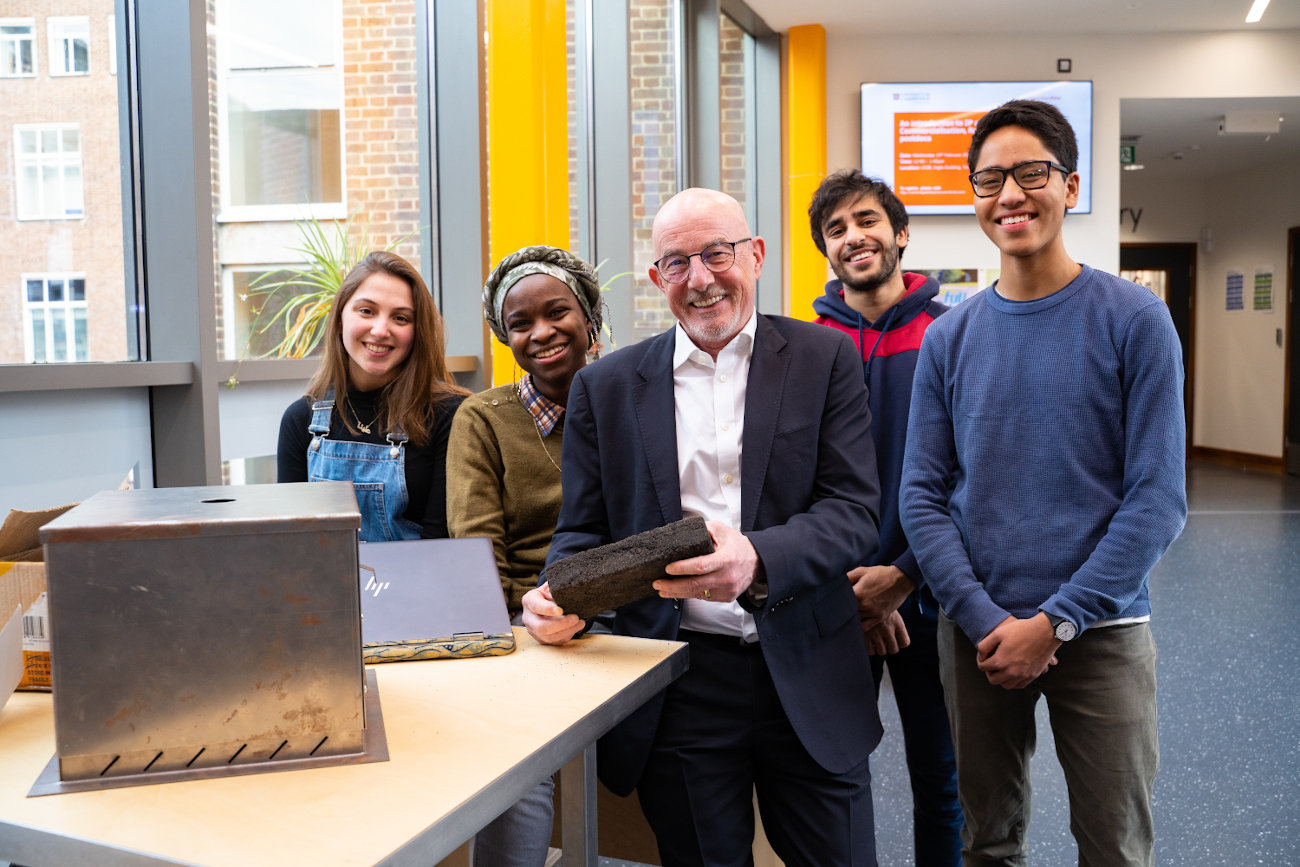
We produce all these fantastic engineers. They go out and design Formula One cars, and bridges, and mobile phones, and computer chips and all of those amazing things. And we are really good at doing that and that is fantastic, but that doesn't really help people to develop stuff that is accessible for people on a dollar a day or two dollars day. Whether or not it's a better cook stove or a better way of making bricks.
Those types of engineering technologies are really important and that's one of the reasons why we sponsored that. The other reason, I have to say, that we have these focuses (or foci) is because it makes it a little bit easier to say no to other things. As a trust, we get a lot of people phoning, emailing, writing letters, because they want support for whatever it might be: a medical charity, a school, lots of different things. And it's hard when you have to say no, and because every case is a deserving case – every single case, and we don't have enough money to support every single case because there's just so many of them. And it doesn't matter if it's your local dog shelter or water in the developing world.
We just don't have enough money to do all those things, or Alzheimer's research. So part of the reason to make the trust really focused is to make it a little bit easier to say no. This isn't emotionally easier for me. I find it very hard when people write a lovely letter about something that really does deserve funding.
I literally can't fund all of them and that's emotionally quite hard. So having a very clear, limited set of things that you want to focus on, makes it emotionally a little bit easier to say no and that's sort of the reason for doing it.
R: That makes complete sense. STEM is a really great cause and we've talked about it a lot on our podcast and it is so true that you get so many people who do engineering and stuff, and they do go onto the top bits, like my brother is studying to be an engineer and he wants to go work in space and all that type of stuff, but actually everyday people also need that kind of brilliance engineering too.
EK: They do, and look, if I had the opportunity to work in space engineering, I'd be on it. I mean, sounds like a fantastic job. Good luck to your brother because I think that's really cool and of course, I'm not saying that everybody should work on solutions that work for the developing world, but we just need some of that because STEM can help there as well as helping us design new space rockets or satellites or something.
It's an area that can cover a lot of sub areas, say from education to development, to super high-end stuff. I'm the Chair of the Isaac Newton Institute in Cambridge which is the world's premier mathematical institute in the whole world. They have a special fellowship called the Rothschild Fellow, which is for the best mathematician in a particular area on each program, which is a lovely thing but unfortunately 97% of those people were white and male which is a bit of a problem.
So, we fund the Kirk fellowship, which is for the best mathematician in a group traditionally underrepresented in mathematics. To have that – it's a little bit of money, but it's also quite a prestigious thing to have. And that helps people to have, or it helps groups underrepresented in mathematics, traditionally women and people of colour have role models right at the very top of the tree in STEM. So, this is not about teaching people how to do calculus or arithmetic. This is about the world's best mathematicians in the world's most esoteric mathematical spaces.
R: I think that's so interesting. That sort of brings me on to like my last question. You talked about setting up a fund for underrepresented mathematicians. And so do you think if we increase our inclusion, and diversity, and equality in the philanthropic space, we would help make those changes of innovation and collaboration that you spoke about earlier.
EK: The easy way of answering this is just – say yes. It's one of those things with diversity, inclusion, is always a good thing. It's never not a good thing. People should be included and we should have diversity of people – from their backgrounds or genders, but also there's a sort of diversity of intellectual thought as well, the way you think about a problem.
Very often, organisations, whether or not they be charities or businesses or in governmental organizations, end up sort of falling into a group think, where everyone thinks the same way, and they all do the same things. What you need is to actively promote and listen to people with different points of view, people with different backgrounds. And the easiest way to get people with different points of view and different backgrounds is not to employ exclusively middle-class white males, which seems a little bit obvious. But yes, the very short answer to your question is yeah – let's have more diversity and inclusion. It’s a good thing. Even if it doesn't promote innovation and collaboration within philanthropic organizations, it's still a good thing to do.
R: Loads of people, when we talk about diversity and inclusion and policy, don't necessarily think about, as you just said, different ways of thinking because that is so important.
EK: I thought about that a lot when I was putting together my own firm. We had some people who by any standards would've struggled to get a job anywhere else because they were a bit weird. Potentially, the bit weird people had some great ideas and as long as you met the weird people halfway, then you got some really good value out of it. I think that's a good thing to do – diversity of thought.
R: Well, it's been so lovely talking to you.
EK: It’s been very nice talking to you too, Rebecca.
R: Thank you so much.
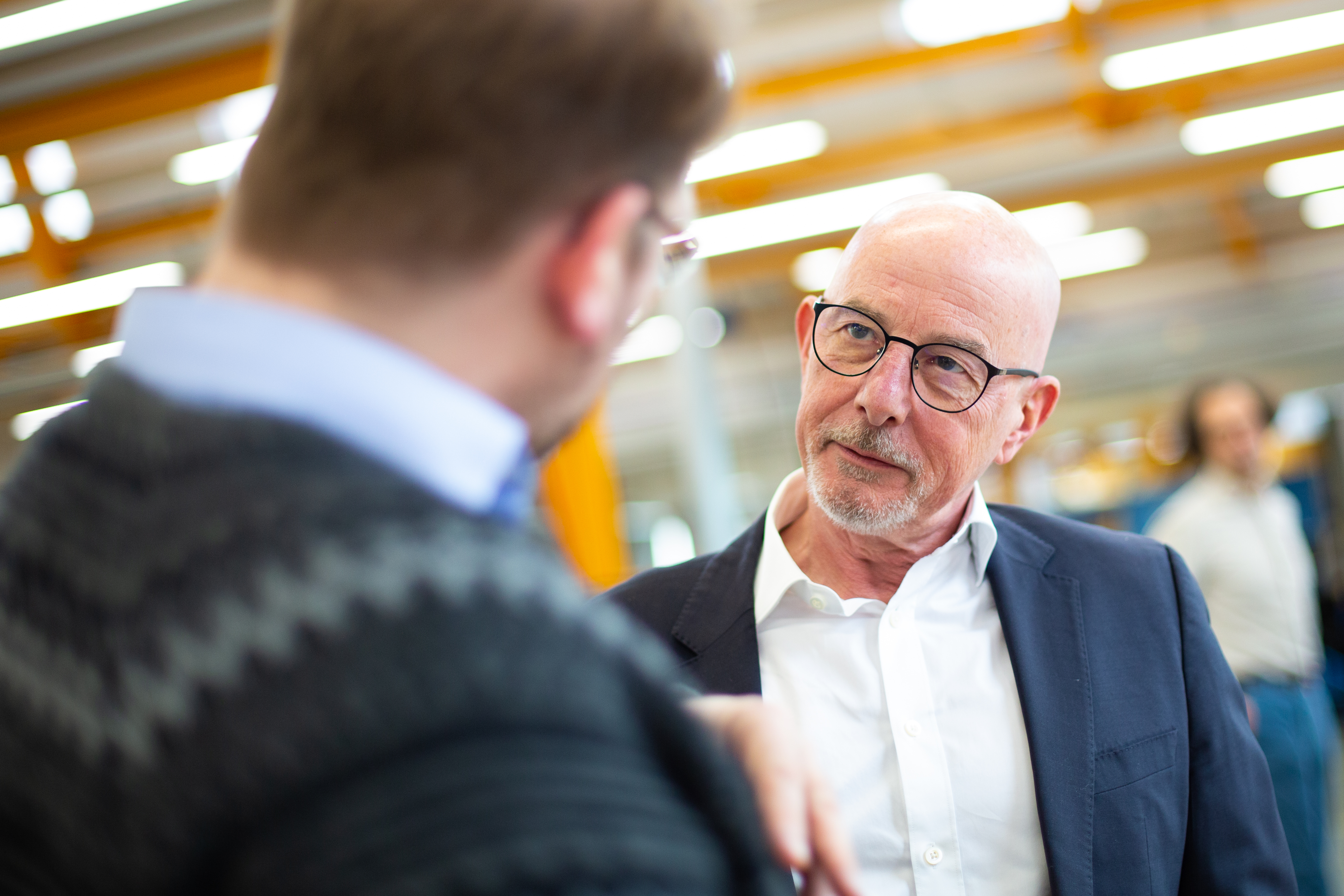
Thank you so much to Dr Ewan Kirk for that really interesting chat and talking us through how philanthropy can be so much more than what it currently is. How with increased collaboration, we can change philanthropy from being one-off donations to really impactful projects that not only help charities, but their services that they're providing in the long run. Why it's important to not fear failure, but see it as an opportunity to learn, improve and grow.
Making sure that we get people from a wide range of backgrounds so that we can continue to increase our diversity of thought, which in turn will help us innovate where it's most needed.
Thank you so much for listening to this episode. We hope you enjoyed it and continue to enjoy the podcast. Now it's just left for me to thank our corporate sponsors.
This episode of Charity Chat has been brought to you by our platinum sponsor Work for Good. Work for Good believes everyone should be able to turn the work they do into good. Through their fundraising platform they offer charities a way to engage and work with small businesses, including founders, owners, and sole traders who want to make an impact for charities through their sales. To find out more, please visit workforgood.co.uk.
Thank you also to Giant Squid Audiolab for sponsoring our podcast kit, Magda Aksamit for our beautiful website. Check it out at charitychat.org.uk. Forest of Fools for playing throughout the show and for playing us out now.
Thank you so much. Bye.

